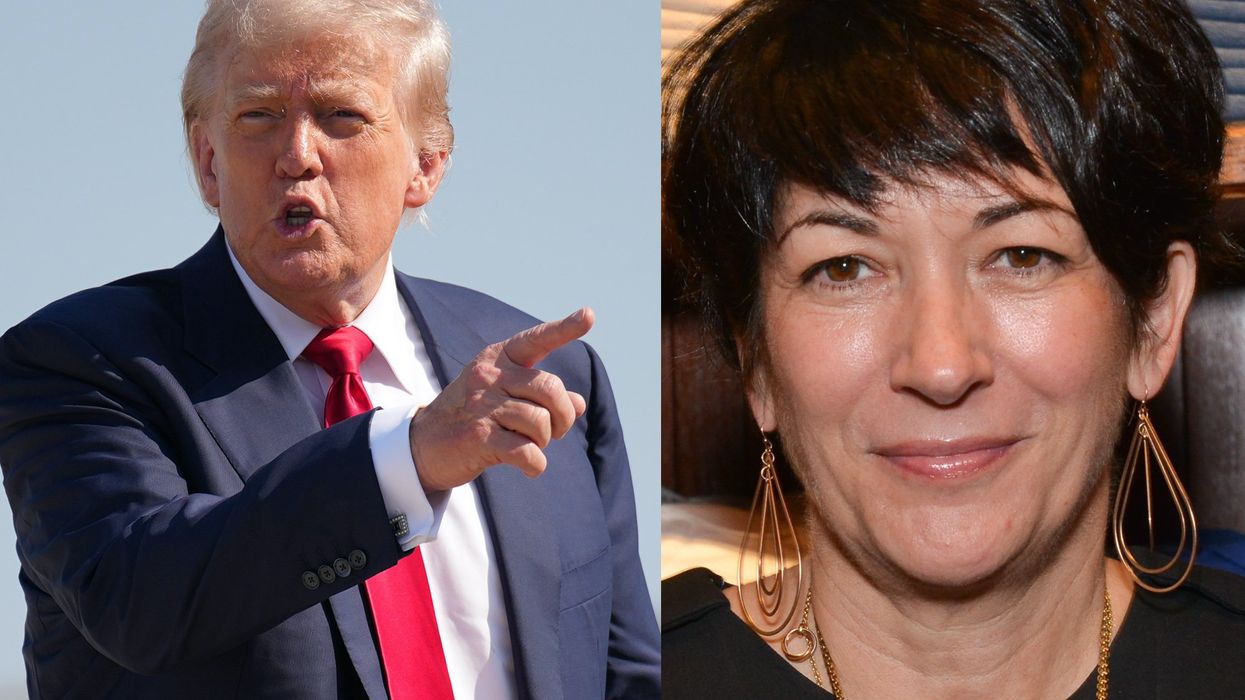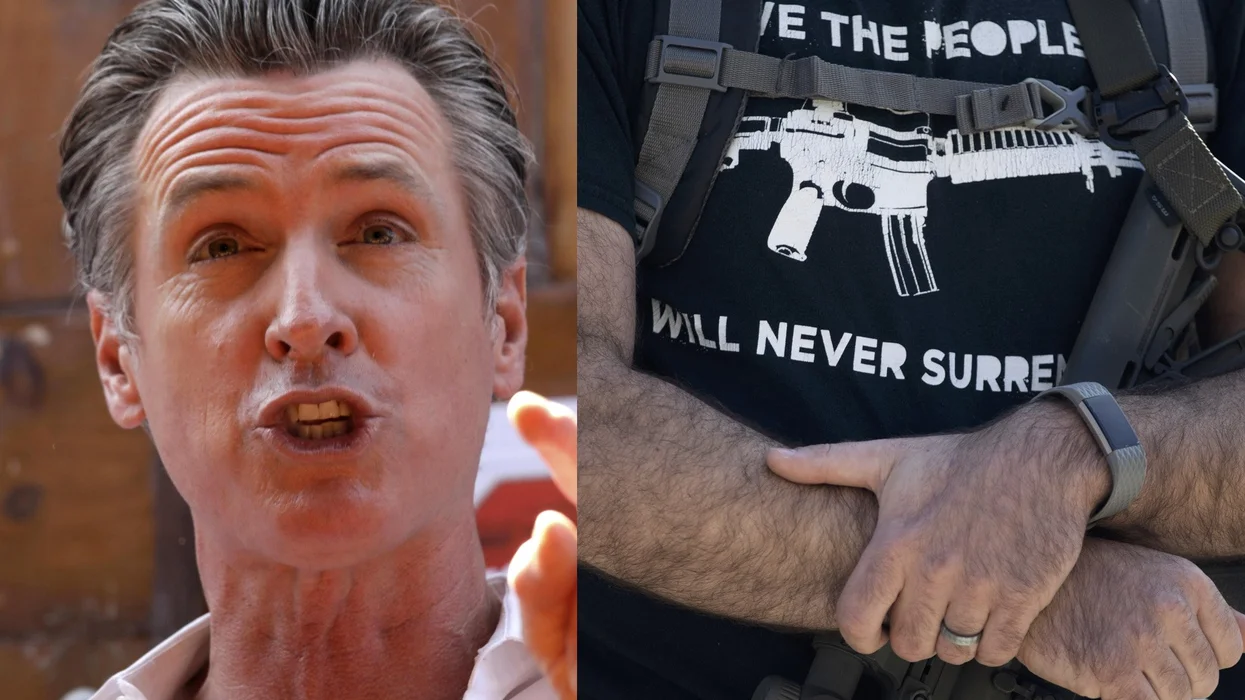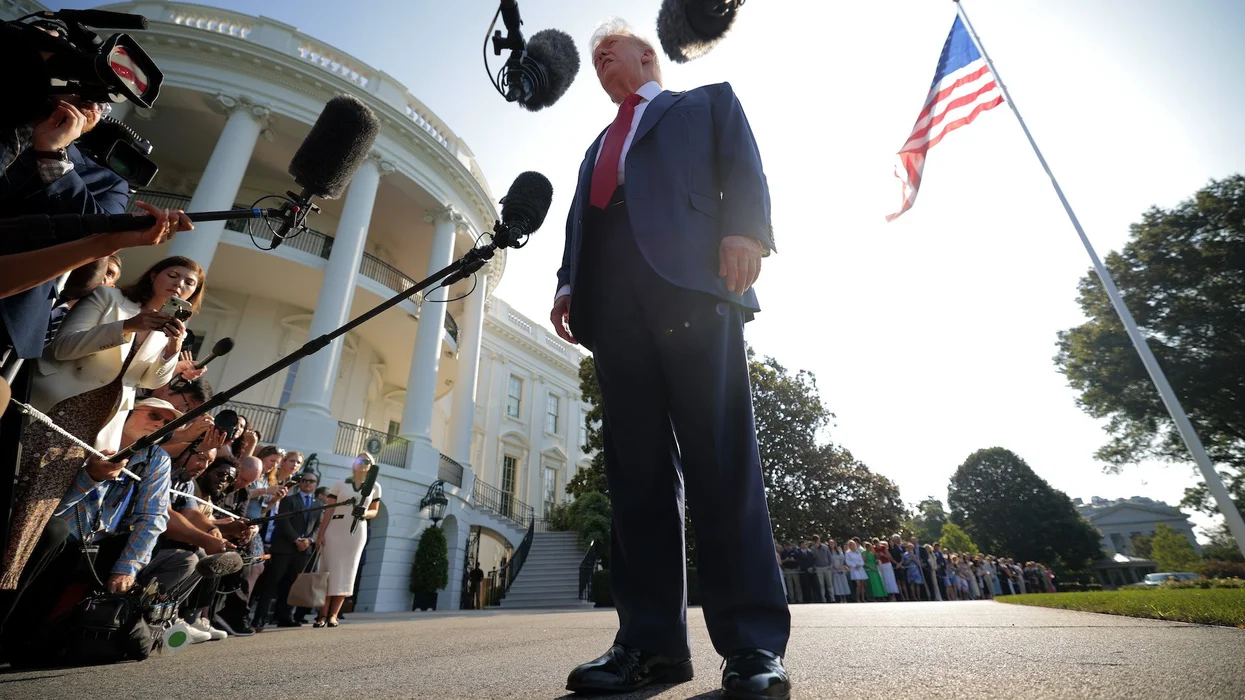
© 2025 Blaze Media LLC. All rights reserved.
NSA Director Says Spy Programs Helped Stop 50 'Potential Terrorist Attacks' -- and Gives Two New Examples
June 18, 2013
Four examples provided including one against the New York Stock Exchange.
WASHINGTON (TheBlaze/AP) -- The director of the National Security Agency Army Gen. Keith Alexander insisted on Tuesday that the government's sweeping surveillance programs have foiled some 50 "potential terrorist attacks" worldwide since September 11, 2001.
Two new examples of plots the agency has thwarted given by FBI Deputy Director Sean Joyce: one against the New York Stock Exchange and another that linked an American providing support to overseas terrorists.
Alexander said he planned to provide the classified details to members of the House Intelligence Committee Wednesday, according to NBC News.
 National Security Agency Director General Keith Alexander testifies before the House Select Intelligence Committee on the NSA's PRISM program, which tracks web traffic and US citizens' phone records, during a hearing on Capitol Hill in Washington, DC, June 18, 2013. (Photo: SAUL LOEB/AFP/Getty Images)
National Security Agency Director General Keith Alexander testifies before the House Select Intelligence Committee on the NSA's PRISM program, which tracks web traffic and US citizens' phone records, during a hearing on Capitol Hill in Washington, DC, June 18, 2013. (Photo: SAUL LOEB/AFP/Getty Images)
Joyce said intelligence programs were able to tie an American citizen to the 2008 attack on hotels in India and a plan to bomb a Danish newspaper office for a cartoon it published about Muhammad. The foiled plot to bomb the New York subway was cited as a success of the programs as well.
The Guardian in its live blog about the hearing recorded more details from Joyce on some of the thwarted plots:
Joyce is further describing the nascent plot to bomb the New York Stock Exchange by Khalid Ouazzani. In an investigation known as Operation Wifi, an extremist in Yemen was identified through "702 authority" – email surveillance.Khalid Ouzzani, who was convicted in the bomb plot, was communicating from Kansas City with the Yemeni number.
The second "new" case Joyce describes was an FBI investigation that began in October 2007 "with a 215," meaning phone surveillance.
The "Investigation we conducted... did not find any connection to terrorist activity," Joyce says. But then the NSA provided the FBI with a San Diego telephone number with suspicious contacts outside the United States.
"We identified that individual," Joyce says. Electronic surveillance followed, co-conspirators were identified and "we were able to disrupt this terrorist activity."
What was the nature of the terrorist activity?
"He was providing financial support to an overseas terrorist group."
Rep. Thornberry asks: "There was some connection to suicide bombings, correct?"
No.
"But the group in Somalia [he contacted – apparently al-Shabaab] - that's what they do do, correct?"
Yes.
Discussing the potential terrorist attacks that have been avoided by the two recently disclosed programs - one that gathers U.S. phone records and another that is designed to track the use of U.S.-based Internet servers by foreigners with possible links to terrorism - is something Alexander said he would "much rather be here today debating [rather] than trying to explain how we failed to prevent another 9/11."
The programs "assist the intelligence community to connect the dots," Alexander told the committee in a rare, open Capitol Hill hearing.
Alexander got no disagreement from the leaders of the panel, who have been outspoken in backing the programs since Edward Snowden, a 29-year-old former contractor with Booz Allen Hamilton, disclosed information to The Washington Post and the Guardian newspapers.
Rep. Mike Rogers, R-Mich., chairman of the committee, and Rep. C.A. Dutch Ruppersberger of Maryland, the panel's top Democrat, said the programs were vital to the intelligence community and assailed Snowden's actions as criminal.
"It is at times like these where our enemies within become almost as damaging as our enemies on the outside," Rogers said.
Ruppersberger said the "brazen disclosures" put the United States and its allies at risk.
The general counsel for the intelligence community said the NSA cannot target phone conversations between callers inside the U.S. - even if one of those callers was someone they were targeted for surveillance when outside the country.
The director of national intelligence's legal chief, Robert S. Litt, said that if the NSA finds it has accidentally gathered a phone call by a target who had traveled into the U.S. without their knowledge, they have to "purge" that from their system. The same goes for an accidental collection of any conversation because of an error.
Litt said those incidents are then reported to the Foreign Intelligence Surveillance Court, which "pushes back" and asks how it happened, and what the NSA is doing to fix the problem so it doesn't happen again.
Rogers previewed the latest public airing of the NSA controversy the morning after President Barack Obama, who is attending the G-8 summit in Ireland, vigorously defended the surveillance programs in a lengthy interview Monday, calling them transparent - even though they are authorized in secret.
"It is transparent," Obama told PBS' Charlie Rose in an interview. "That's why we set up the FISA court," the president added, referring to the secret court set up by the Foreign Intelligence Surveillance Act that authorizes two recently disclosed programs: one that gathers U.S. phone records and another that is designed to track the use of U.S.-based Internet servers by foreigners with possible links to terrorism.
Obama said he has named representatives to a privacy and civil liberties oversight board to help in the debate over just how far government data gathering should be allowed to go - a discussion that is complicated by the secrecy surrounding the FISA court, with hearings held at undisclosed locations and with only government lawyers present. The orders that result are all highly classified.
"We're going to have to find ways where the public has an assurance that there are checks and balances in place ... that their phone calls aren't being listened into; their text messages aren't being monitored, their emails are not being read by some big brother somewhere," the president said.
A senior administration official said Obama had asked Director of National Intelligence James Clapper to determine what more information about the two programs could be made public, to help better explain them. The official spoke on condition of anonymity because the official was not authorized to speak publicly.
Snowden accused members of Congress and administration officials Monday of exaggerating their claims about the success of the data gathering programs, including pointing to the arrest of the would-be New York subway bomber, Najibullah Zazi, in 2009.
In an online interview with The Guardian in which he posted answers to questions Monday, Snowden said that Zazi could have been caught with narrower, targeted surveillance programs - a point Obama conceded in his interview without mentioning Snowden.
"We might have caught him some other way," Obama said. "We might have disrupted it because a New York cop saw he was suspicious. Maybe he turned out to be incompetent and the bomb didn't go off. But, at the margins, we are increasing our chances of preventing a catastrophe like that through these programs," he said.
Obama repeated earlier assertions that the NSA programs were a legitimate counterterror tool and that they were completely noninvasive to people with no terror ties - something he hoped to discuss with the privacy and civil liberties board he'd formed. The senior administration official said the president would be meeting with the new privacy board in the coming days.
This story has been updated.
Want to leave a tip?
We answer to you. Help keep our content free of advertisers and big tech censorship by leaving a tip today.
Want to join the conversation?
Already a subscriber?
more stories
Sign up for the Blaze newsletter
By signing up, you agree to our Privacy Policy and Terms of Use, and agree to receive content that may sometimes include advertisements. You may opt out at any time.
Related Content
© 2025 Blaze Media LLC. All rights reserved.
Get the stories that matter most delivered directly to your inbox.
By signing up, you agree to our Privacy Policy and Terms of Use, and agree to receive content that may sometimes include advertisements. You may opt out at any time.





